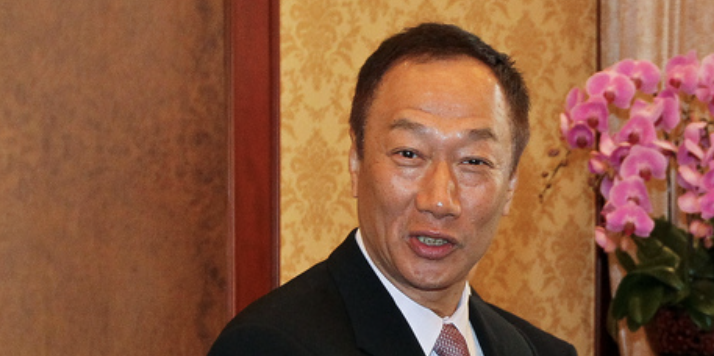
The founder of Foxconn has recently thrown his hat in the ring of the presidential race in Taiwan that will be decided next January. Terry Gou says that he knows exactly how to fix the problem of China’s belligerence toward Taiwan, belligerence that includes sending war planes and war ships to graze the island.
“Give me four years and I promise that I will bring 50 years of peace to the Taiwan Strait and build the deepest foundation for the mutual trust across the strait,” he says. “Taiwan must not become Ukraine and I will not let Taiwan become the next Ukraine.”
But it’s China which is acting as if it may well invade Taiwan, not vice versa. Nobody thinks that Taiwan is making military preparations to do anything but defend itself; the politicians and military strategists of Taiwan do not include invasion of China among their possible courses of action.
According to The Wall Street Journal (“Foxconn Founder Stirs Up Taiwan Presidential Race by Declaring Bid,” August 28, 2023), Gou professes to be unfettered by partisan ideology.
“The people’s interests are my biggest interests…. I don’t have partisan baggage.”…
Gou criticized Lai’s position in a July op-ed for the Washington Post, writing that Taipei can secure peace only by working with Beijing “directly on the basis of the one-China framework.”
The tycoon reiterated that view on Monday by invoking the specter of a Chinese invasion similar to Russia’s war with Ukraine. “I will also absolutely not allow Taiwan to become the next Ukraine!” he said.
In his Post op-ed (“Taiwan abandoning the one-China framework aggravates the risk of war,” July 17, 2023), Gou blasts the ruling party’s refusal to accept the fiction that wanting to remain a separate country is compatible with accepting a “one-China framework”: “By abandoning the one-China framework for talks,” he writes, “the current leaders in Taiwan and those in their party who would replace them have greatly aggravated the threat of war, isolated Taiwan internationally, damaged our economy, scared away investors and made Taiwan less secure.”
How could the government of Taiwan have done all this simply by making clear that Taiwan prefers to remain a separate country and has no plans to politically unite itself with the mainland? The other almost-200 countries of the world have the same preference. It is very unexceptional. Of the two countries here, Taiwan and China, it is obviously China that is fundamentally to blame for “greatly aggravat[ing] [and inaugurating] the threat of war” and “[making] Taiwan less secure.” But never saying so is central to Gou’s strategy of appeasement.
In the op-ed, Gou speaks of “reckless rhetoric and provocative policies,” by which he means to refer only to the policies of Taiwan. He cannot actually believe that China is a mere innocent bystander, a justly aggrieved party that in reason must of course become murderously angry if another country affirms that it is another country and has no wish to become subject to the totalitarian policies of the mainland.
It seems, then, that the first thing Gou requires of himself, of voters—and, if by a long shot he wins the presidency, of the implementers of a future Taiwanese foreign policy—is that everybody play make-believe and pretend that the bully is not a bully and will retreat if only you do whatever he says.






